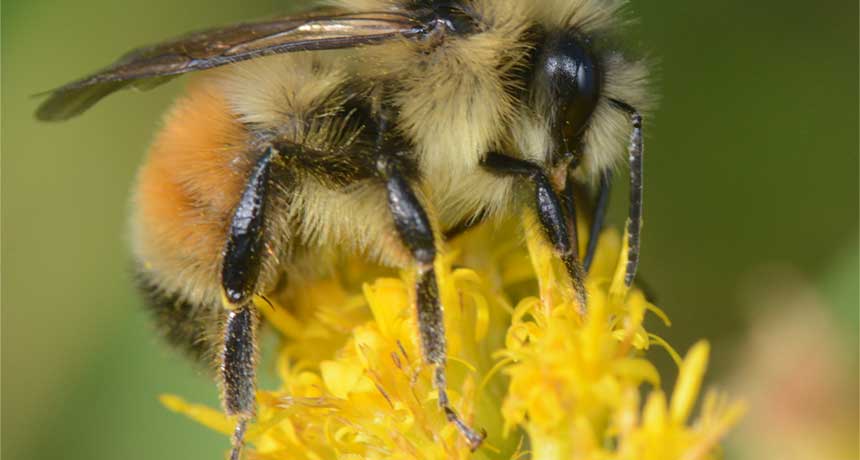Pollen becoming bee junk food as CO2 rises

Bees may need their own supplemental protein shakes as increasing carbon dioxide in the atmosphere saps the nutritional quality of pollen.
Pollen collected from plants gives bees their only natural source of protein (nectar is a sugar-shot for energy). Yet protein content in pollen of a widespread goldenrod species (Solidago canadensis) dwindled by a third, from about 18 percent to 12 percent, over 172 years, according to analysis of recently collected flowers and of preserved specimens at the Smithsonian Institution’s National Museum of Natural History. During those same years, CO2 concentrations in the atmosphere increased from about 280 parts per million to 398 ppm, researchers report April 12 in Proceedings of the Royal Society B.
The same themes also showed up in two years of growing the goldenrod at CO2 concentrations up to 500 ppm. More CO2 meant less concentrated protein in pollen, say Lewis Ziska of the U.S. Department of Agriculture’s Bee Research Laboratory in Beltsville, Md., and his colleagues.
“It’s like you’re eating a starchier diet — what would that do to us?” says study coauthor Joan Edwards of Williams College in Williamstown, Mass. “Bees aren’t so different.”
Bees, wild or domesticated, need adequate protein to feed their larvae, maintain their immune systems and for many more functions, says bee biologist Cédric Alaux of the French agricultural research agency INRA in Avignon. Canada goldenrod is an example of a species known to offer pollen that can be stored to tide honeybees over the winter. The one-third decrease in protein concentration reported in the new study is big enough to shorten bee life spans, he says.
Lower quality in bee food sources could be contributing to global bee declines observed in recent years and the uncertain state of pollination for crops, Edwards says. “The health of the bee population is not just for the flowers and the bees and biodiversity, but also for human health and well-being.”